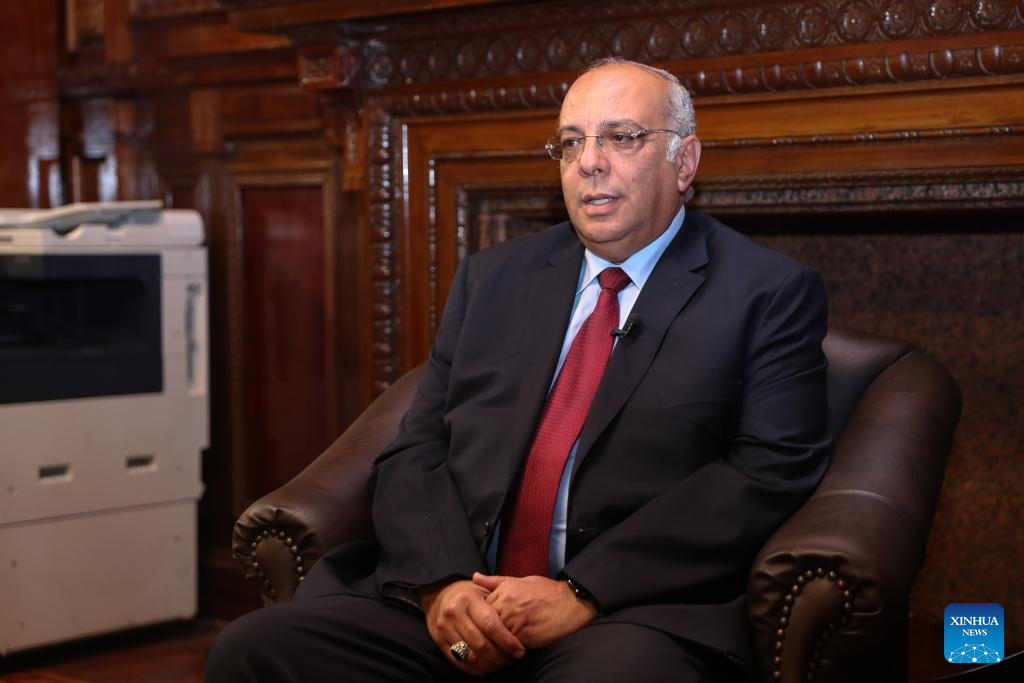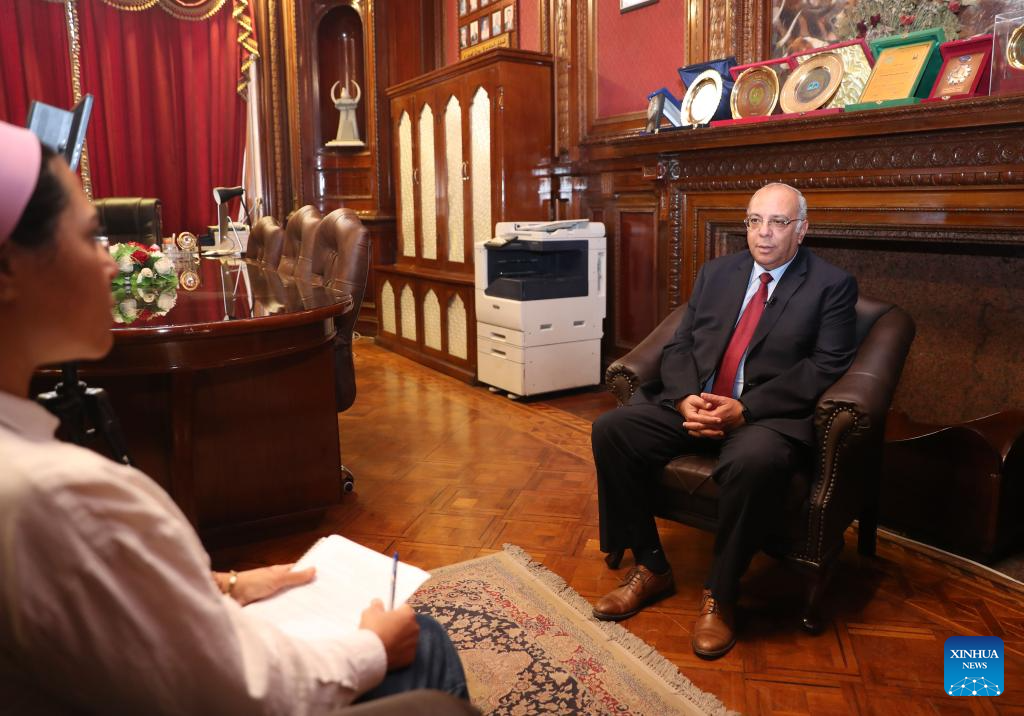
Hosam Shawky, president of the Egypt's Desert Research Center (DRC), receives an interview with Xinhua in Cairo, Egypt, Oct. 19, 2025. (Xinhua/Sui Xiankai)
CAIRO, Oct. 20 (Xinhua) -- Egypt seeks to deepen cooperation with China in combating desertification, managing water resources, and boosting agricultural productivity, drawing on China's expertise in greening arid lands and sustainable development, an Egyptian official said recently.
Hosam Shawky, president of the Desert Research Center (DRC), one of Egypt's oldest research institutions and affiliated with the Ministry of Agriculture and Land Reclamation, highlighted China's successful experience in controlling desertification -- particularly in the Taklamakan Desert -- as a valuable model for Egypt.
"China's green belt and large-scale restoration projects are models we look up to," Shawky told Xinhua in an interview on Sunday, adding that Egypt is eager "to draw on China's expertise in sustainable land and water management."
Cooperation between the two countries is already underway through scientific and academic exchanges. Noting that many Egyptian researchers have earned master's and PhD degrees in China in fields related to the environment, agriculture, and desertification control, Shawky said these researchers now serve as "a bridge linking Egyptian and Chinese institutions."
Last week, several Egyptian and Chinese research centers, including the DRC, signed a cooperation protocol to promote scientific research, academic collaboration, and the exchange of expertise.
As part of the agreement, a regional office of the China-Africa Research Center will be established in Cairo at the DRC to enhance bilateral and multilateral cooperation among Chinese, Egyptian, and North African research institutions. The office will also oversee joint training programs to build the capacity of African professionals.
Speaking about the new office, Shawky said it "will extend training and awareness programs to African partners," expressing hope that the Egypt-China collaboration will become a model benefiting other African countries facing similar environmental challenges.
The DRC is also working with Chinese investors and scientists to cultivate non-traditional, high-yield crops that can thrive in saline and dry conditions, he added. "Our focus is on achieving the highest productivity with the least water consumption."
According to Shawky, Egypt faces "a huge challenge" in meeting the food demand of a growing population amid severe water scarcity and limited arable land.
"Egypt has already exceeded the level of water poverty," he said, noting that each citizen now has access to only 500 cubic meters of water per year -- well below the international benchmark of 1,000 cubic meters that defines water scarcity.
To bridge the gap between water supply and demand, Egypt has adopted advanced technologies such as desalination and wastewater treatment, though high costs remain a challenge.
"Each year, Egypt loses land due to desertification, drought, and shifting dunes," he said. "This makes cooperation with China in green belt and reforestation projects vital, not only to protect the environment but also to safeguard investments in new urban and agricultural areas."
Highlighting the shared commitment of Egypt and China to sustainable development, Shawky said that through technology, research, and international cooperation -- especially with China -- Egypt can secure water resources, enhance food security, and safeguard the future of coming generations. ■

Hosam Shawky, president of the Egypt's Desert Research Center (DRC), receives an interview with Xinhua in Cairo, Egypt, Oct. 19, 2025. (Xinhua/Sui Xiankai)
